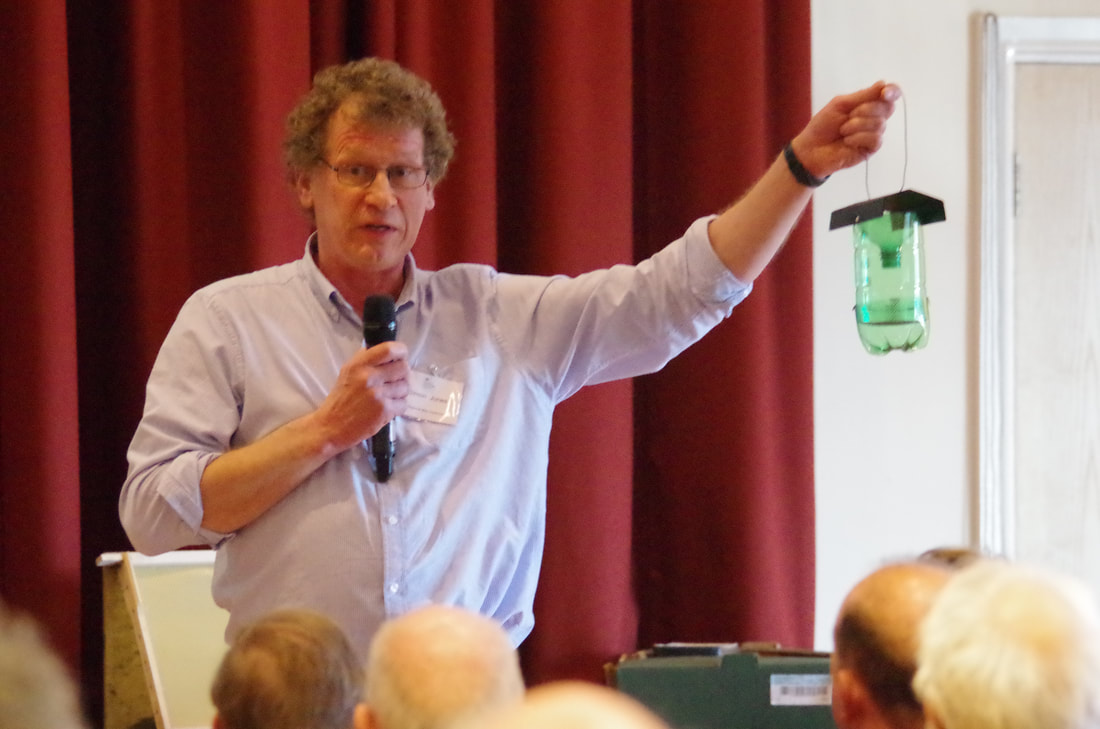|
SW Regional Bee Inspector Simon Jones writes about the last season in his annual report - the good, the bad and the ugly! It provides a fascinating snap-shot of what has happened in Somerset and the region. There is some good news for our county beekeepers - the number of colonies affected by EFB fell last year to 26, but that is still more than Devon, Cornwall and Avon put together. However AFB was not reported in Somerset but it is just over the county border in Devon. "The 2018 season started late after a cold winter and spring. However colonies that were healthy and strong coming out of the winter were able to take advantage of the good weather that followed and gathered a good crop of honey. From my own experience the honey has been of a good quality with most of the combs fully capped with the extracted honey having a low moisture content. The Bee Inspectors have had another busy season. They have been carrying out their usual programme of risk based inspections for European Foulbrood (EFB) and American Foulbrood (AFB). There has been an increase in the levels of disease in Cornwall but the other counties which make up the South West Region (SW) have showed a significant decrease with Avon having no disease at all (see graphs further in the report). In partnership with the local Beekeeping Associations we have continued to deliver our ‘Bee Health Days’. This season the North Somerset/Avon Bee Health Day took place at the Langford Veterinary College, the Cornwall Bee Health Day was in Lostwithiel at the local community centre and the Devon Bee Health Day was hosted by Exeter Branch at the Kenn Centre just outside of Exeter. I would like to thank all of the local association secretaries/training officers who helped us to manage the programme of Bee Health Days across the SW. We are also very grateful to the local beekeepers who allowed us to use their nearby apiaries for demonstration purposes. The Inspectors also had a presence at the Somerset Lecture Day in February and Cornwall’s ‘Bit of a Do’ (BOAD) in September. We have again been carrying out Exotic Pest Surveillance (EPS) inspections around risk points such as ports and airports to check for incursions of Small Hive Beetle (SHB), Tropilaelaps and Asian Hornet. With local beekeepers help we set up four Enhanced Sentinel Apiaries, two are situated near Avonmouth Docks and two near Plymouth Docks, both are considered to be very high risk points. These apiaries are inspected three times a year by the local BeeInspector and floor samples are sent into the FERA laboratory for analysis. In addition to these inspections there are 18 Sentinel Apiaries around the region. This is where beekeepers that have an apiary near a risk point assist the National Bee Unit (NBU) by regularly monitoring their colonies for Exotic Pests and twice a year they send in floor debris samples to be tested. I am very grateful to the South West Sentinel Apiary Beekeepers for all of their help this season, they are an important part of the NBU’s surveillance programme. Part of our work each season is to monitor imports of queens and package bees from the European Union (EU) and Third Countries (Argentina, Australia and New Zealand). Again this year we saw a large number of packages imported from Italy, some of which were bought by beekeepers in the South West (SW) region. These were inspected for SHB as they were decanted into hives and fortunately nothing was found (SHB was found in Southern Italy in 2014). Throughout the season the SW Inspectors carried out enhanced surveillance for Asian Hornet in the Woolacombe area of North Devon to ensure nothing had been overlooked from the nest that we found and destroyed in 2017. We were also in the thick of it again when Asian Hornet was found to be predating bees in an apiary in Cornwall." For more a detailed report, please download the file below.
Comments are closed.
|
Archives
March 2024
Categories
All
|
||||||
Somerset Beekeepers Association Charity © 2021 Registered CIO Charity 1206483
Affiliated to the British Beekeepers Association
Click here to view our Privacy Policy
Affiliated to the British Beekeepers Association
Click here to view our Privacy Policy

 RSS Feed
RSS Feed
